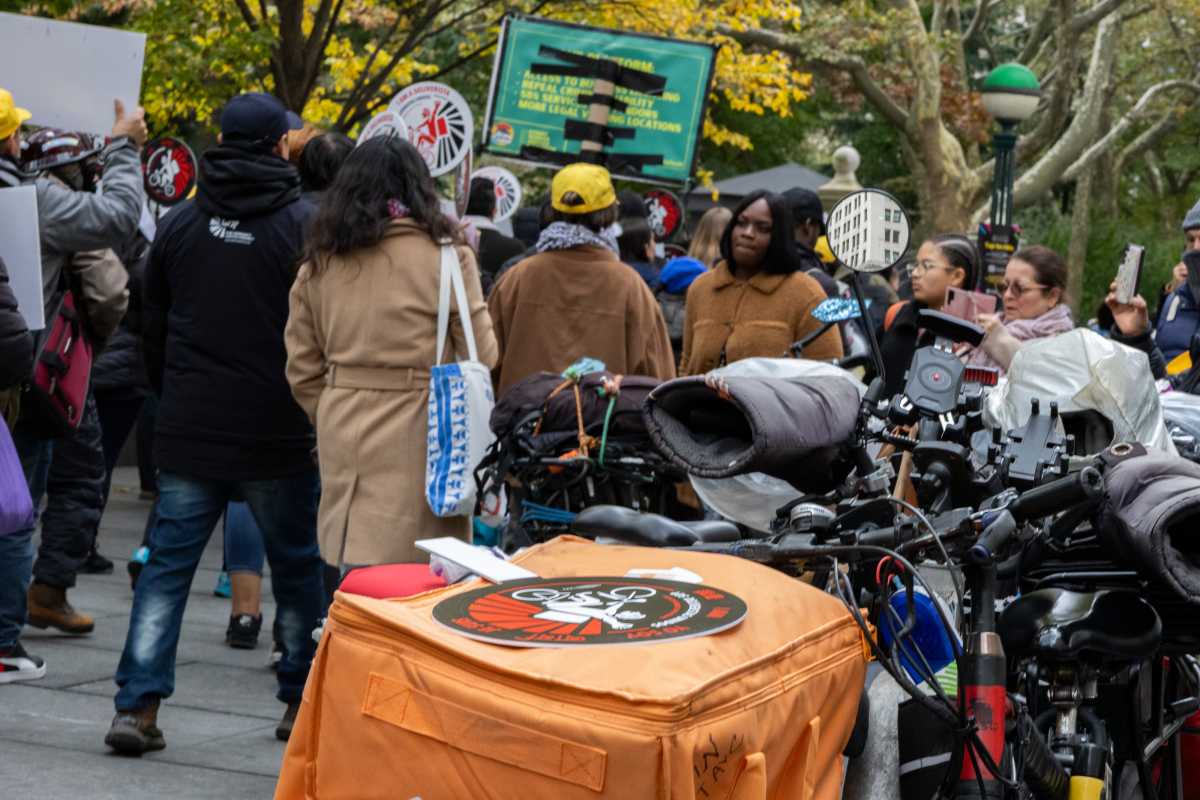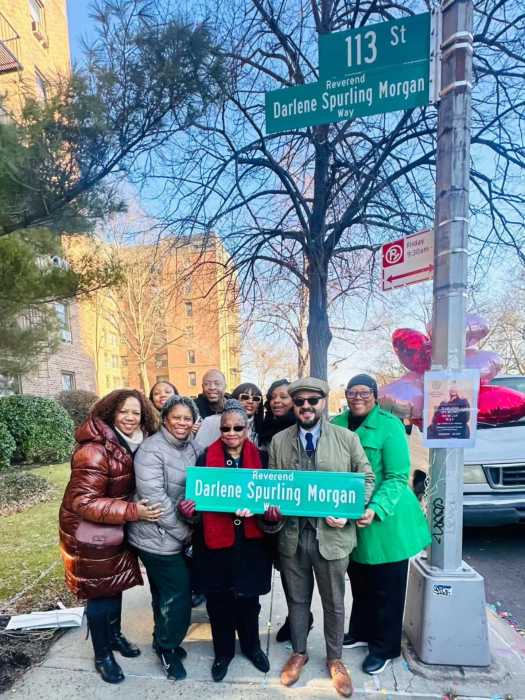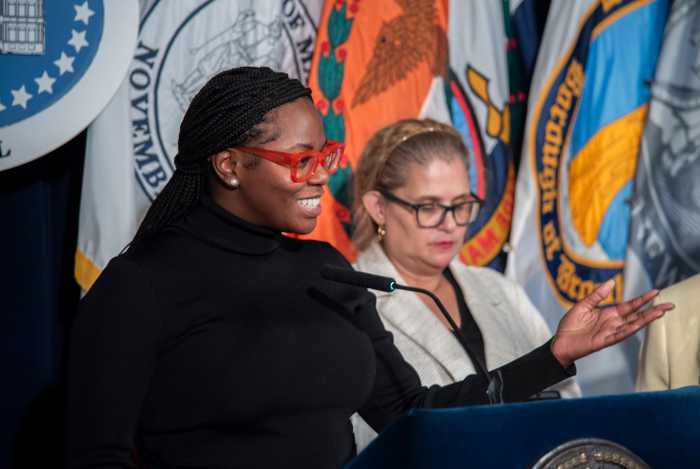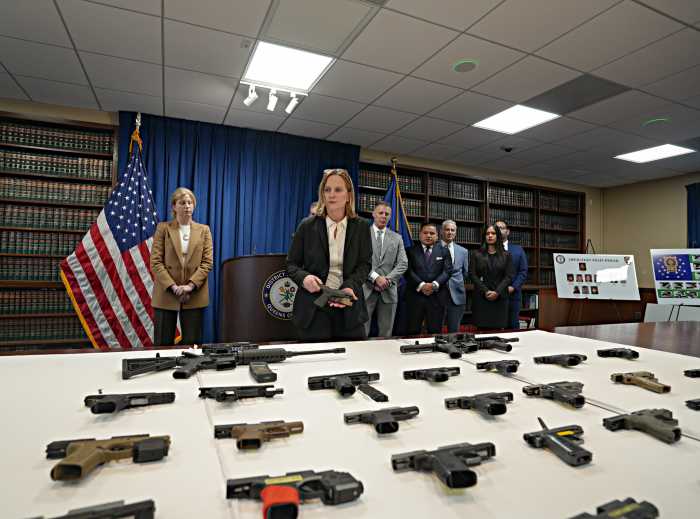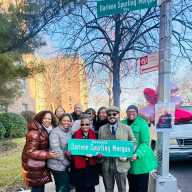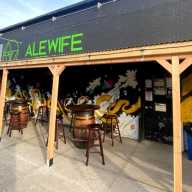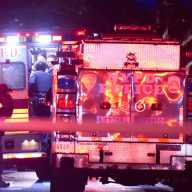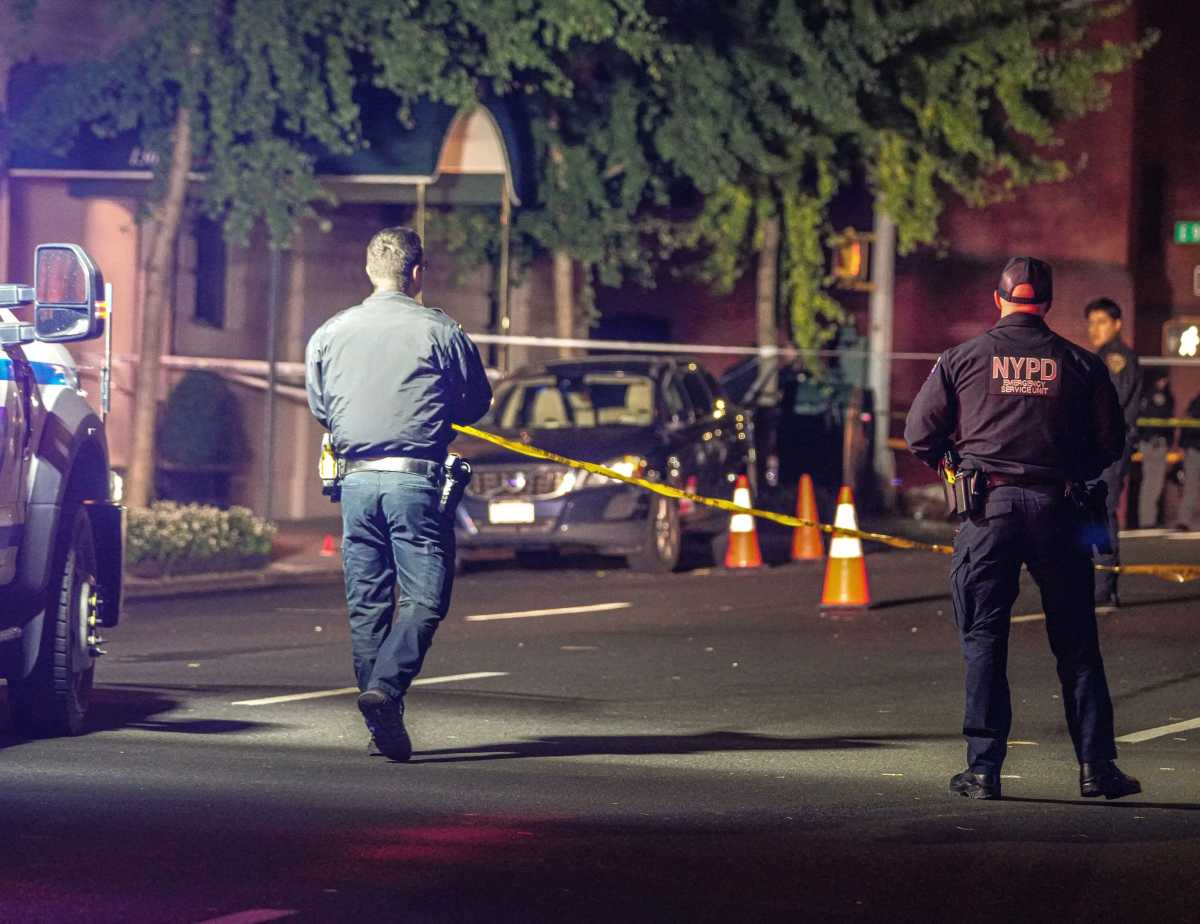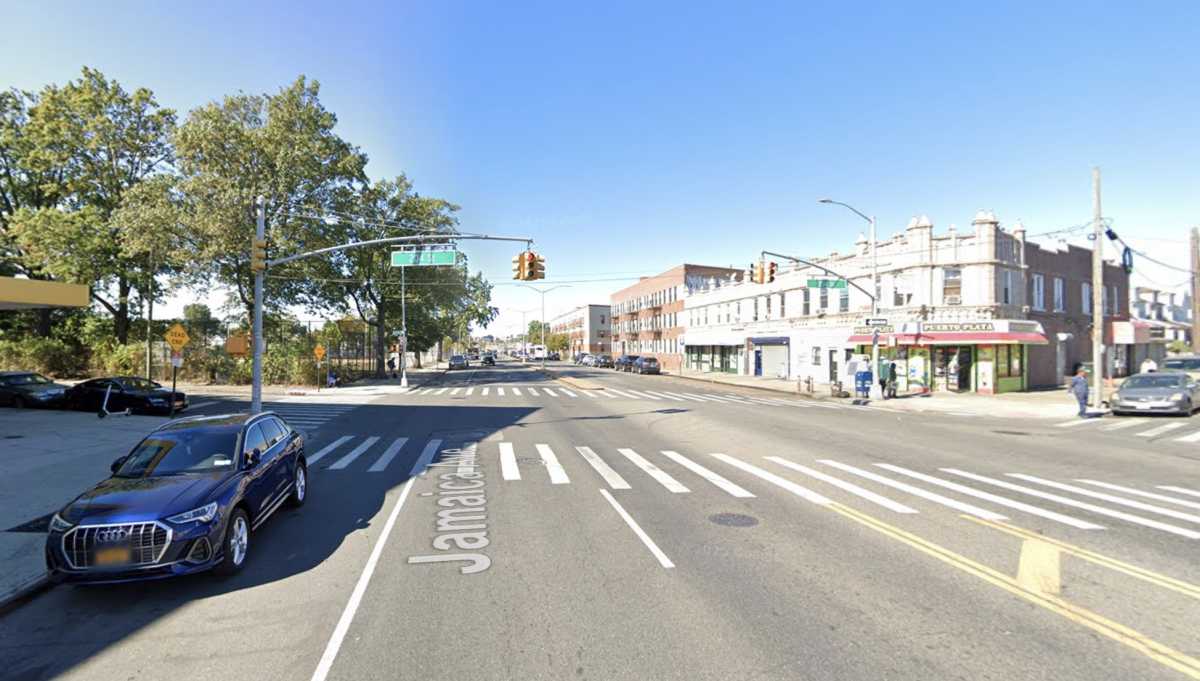On Oct. 29, a group of delivery drivers and street vendors, both licensed and unlicensed, marched around City Hall half a dozen times to bring attention to a series of proposed City Council bills that will reform their industry and protest the recent ICE raid that took place in Chinatown last week.
The protest organizers, the Street Vendor Project (SVP) and Workers Justice Project (WJP), held a press conference before the march featuring notable speakers such as Council Members Shaun Abreu and Shahana Hanif, a representative for Public Advocate Jumaane Williams and several vendors or delivery drivers, who all gave testimony in support of the bills.
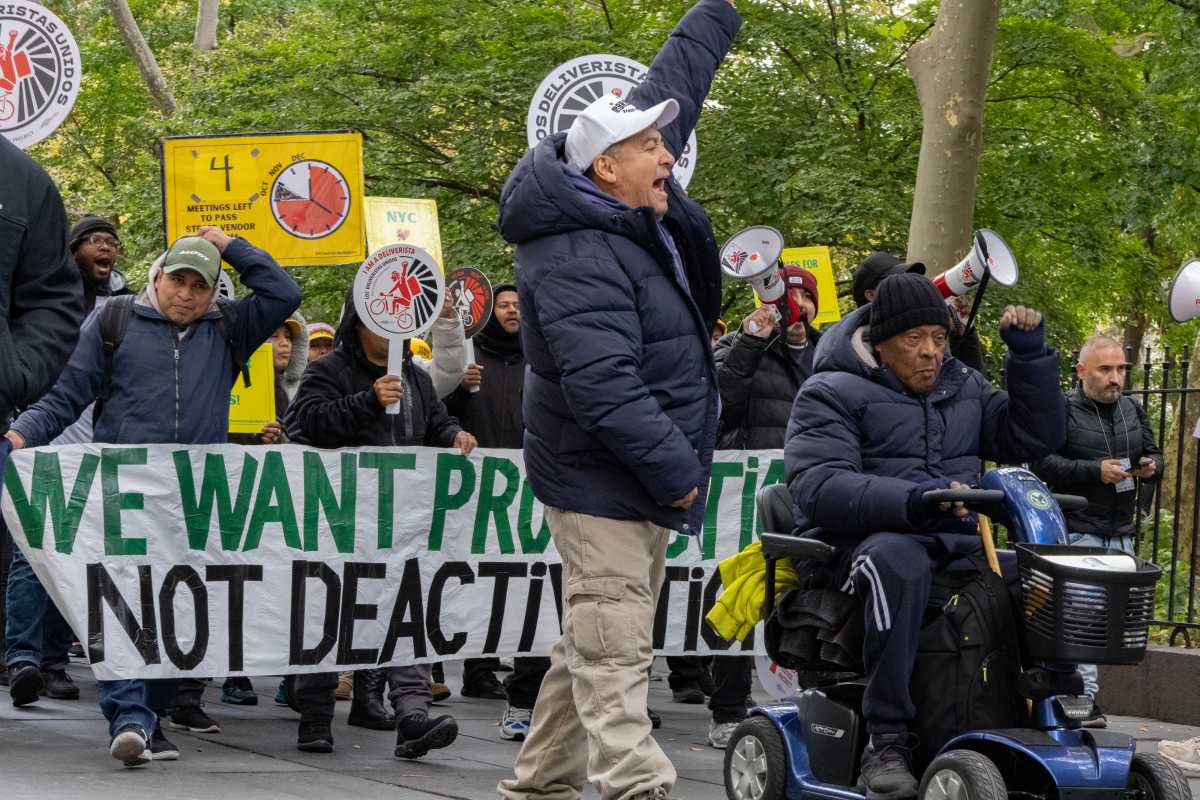
One of the street vendors, who operates her business in Queens, chose to speak out during the rally. She only identified herself as “C” to protect her identity.
“That’s why I’m here, even though I’m terrified right now given the situation with immigration,” C said. “But if I don’t lift my voice up to say that there’s a need for this legislation to pass, then it will never happen.”
A street vendor waiting too long for permit
C is an immigrant who supports her entire family, of which she has three generations, with the money she makes from her Mexican food stand. However, C is not licensed, nor is she able to be put on the waitlist.
Despite the City Council doubling the cap for vendor licenses in 2021, last year the city only issued 129 new licenses, meaning it would take almost a century to process everyone currently on the waitlist. For vendors like C — who were unable to join the waitlist during the 30 days it was open in 2016 or the equally long waitlist for a supervisory license in 2022 — she has no choice but to operate her business unlicensed to care for her family.
“I’m the sole provider for my family, and right now, the decision that I have to make at the end of the month is do I put food on the table or do I pay the rent?” C said. “It’s just so unfair that this is what’s happening to me, and I’m not the only one.”
According to several anonymous licensed vendors, a majority of the vendors stationed at the Myrtle Wyckoff Plaza in Ridgewood and around Queens are unlicensed and violate the rules and regulations for vending, such as trash disposal, food safety requirements and stand locations.
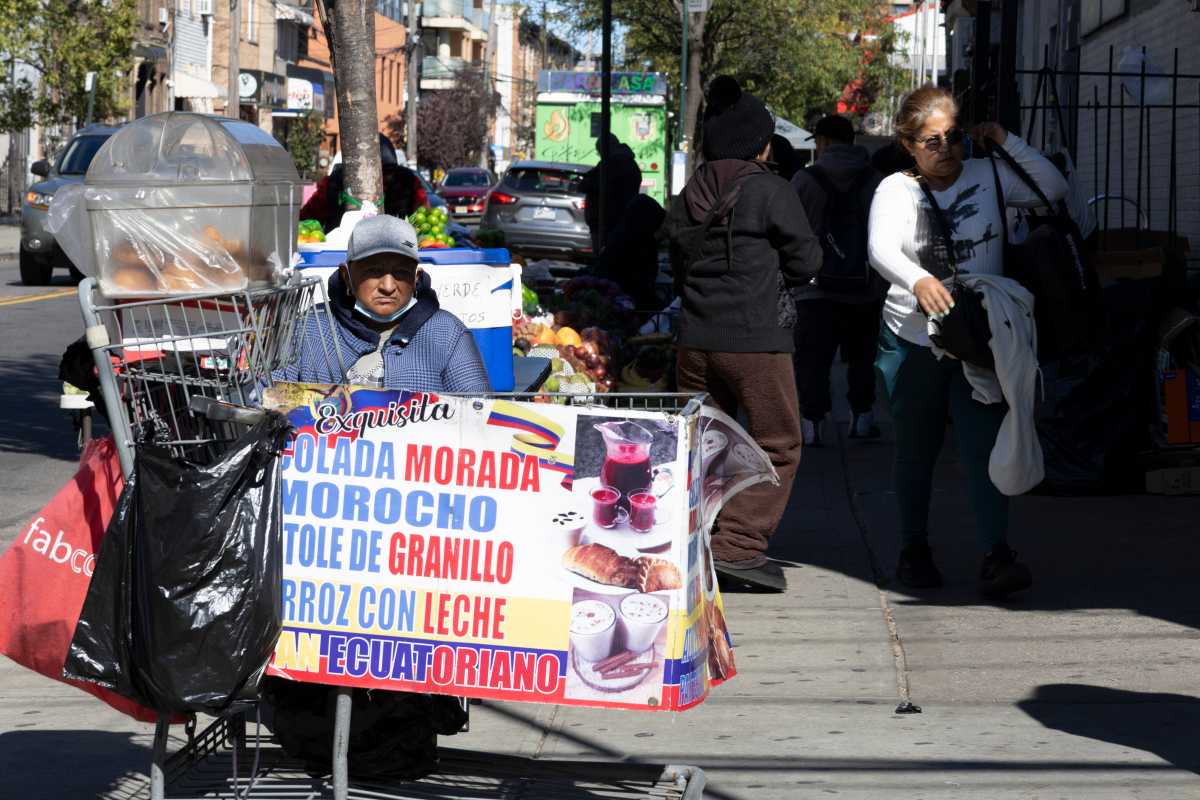
“My office has in the past received complaints about the need for cleanliness and clear walkways at Myrtle-Wyckoff Plaza, which is why we established an interagency task force with other elected officials, organizations and agencies to coordinate sanitation and compliance,” said Brooklyn City Council Member Sandy Nurse, who represents part of the plaza along with Brooklyn/Queens Council Member Jennifer Gutierrez. The Myrtle Wyckoff Plaza runs through both of their districts.
The licensed vendors frequently complain to the Department of Sanitation (DSNY), which is currently responsible for enforcement after the responsibility was transferred among three departments over the past decade.
One anonymous licensed vendor reported that during inspections conducted by DSNY’s police, typically only food is confiscated after unlicensed vendors flee their stands, only to return an hour later once authorities have left.
“I don’t like when people are always trying to be a victim,” said an anonymous licensed vendor, who used to be a part of SVP before leaving after the nonprofit began pushing to increase the number of licenses. “If the city gives a permit for everyone who wants to work in the city, we’re going to reach a moment where nobody can walk on the streets anymore on the weekend. We need to work on the streets, but we also need to respect the rules.”
Efforts to modernize street vendor permits
Licensed vendors are also upset that their unlicensed competitors do not have to pay the same taxes. However, SVP Managing Director Mohammed Attia says the unlicensed vendors’ disobedience of the law is due to ignorance and not malice, which is why SVP supports Intro. 0408 and the creation of the Division of Street Vendor Assistance to help educate vendors.
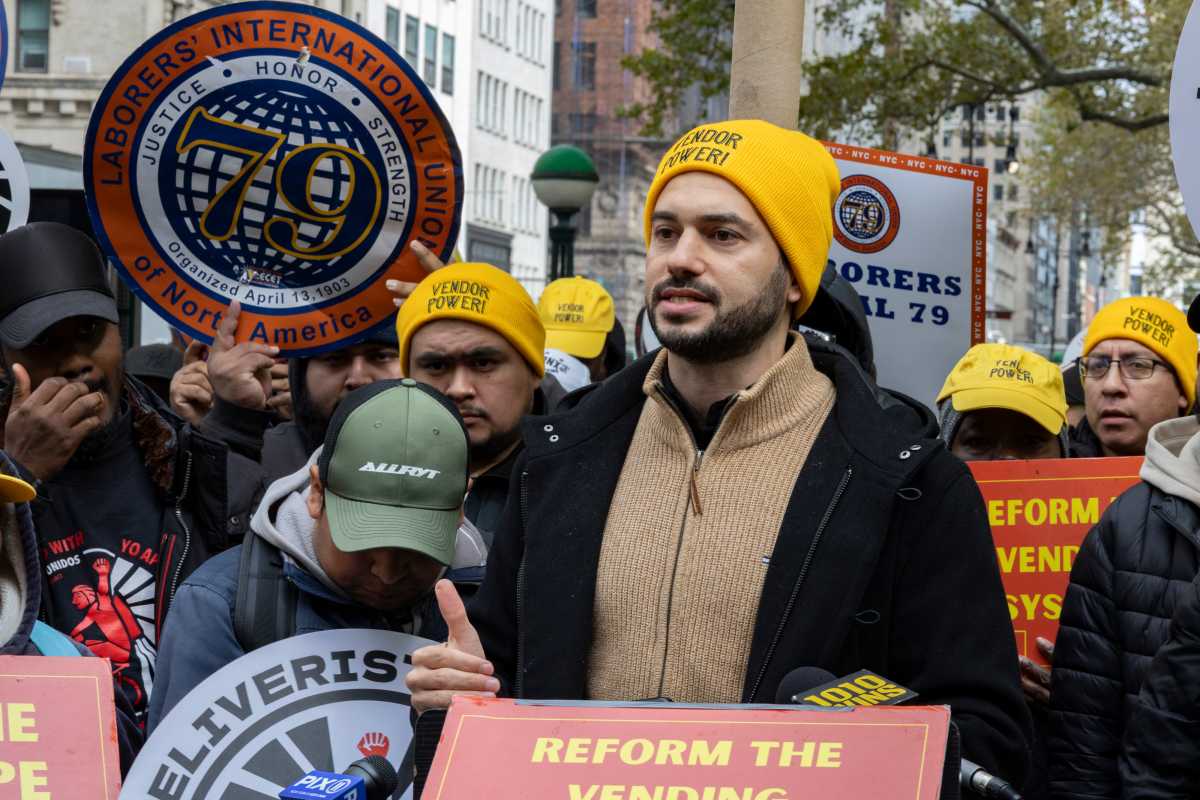
Attia believes a double standard exists for the street vendors, as a traditional restaurant receives a formal inspection from an agency representative, not a “raid” by armed police officers.
C says she has witnessed women in her position deal with “heart failure” and other health problems due to the financial stress and pressure of potential inspections from DSNY officers.
“I cannot be the only one out there talking to 23,000 vendors with a team of 10 people. That’s ridiculous,” Attia said. “They are allocating millions of dollars to the sanitation police to go after the vendors and write tickets. How about the same amount of money to the Department of Small Business (SBS) to create outreach, education and training [programs] for the vendors?”
C is one of the vendors approached by SVP and educated on the proper way to run an open-air kitchen. After getting in contact with the non-profit, C makes an effort to follow the regulations, such as proper trash disposal, food safety requirements and proper placement on the sidewalk for accessibility.
The one rule C does not follow: she does not use a push-cart, which is required by the Department of Health (NYDOH) for vendors like her to cook. C says that she is able to afford the cart, but is not willing to take the financial risk should DSNY confiscate it during an inspection.
“I feel more persecuted than ever. I feel the pressure of everything happening and the enforcement and fear of ending in the street more than ever,” C said, when asked if she worried ICE might come to Queens. “ But if I don’t raise my voice and don’t speak up for what our needs are, then nothing is going to change.”
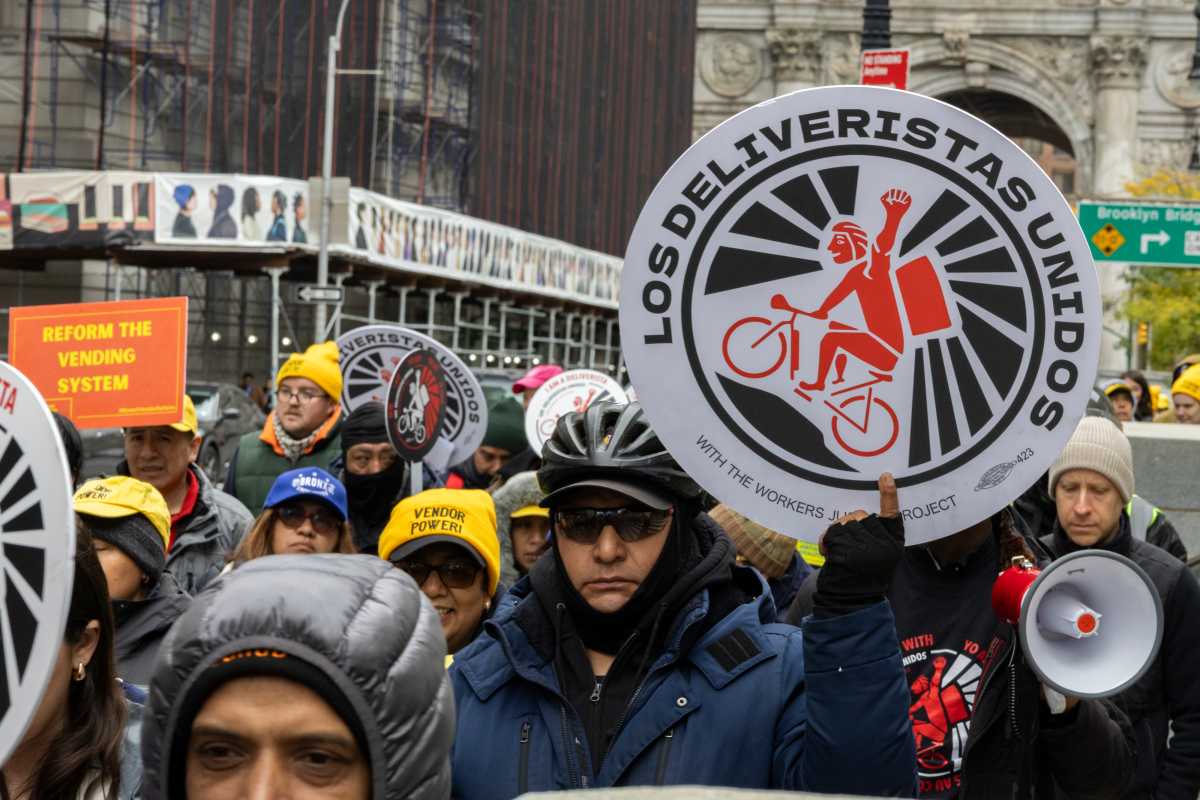
C wants to adhere to the law and has no issue paying the fee for the permit and additional taxes to run a licensed business. She also notes that she still pays taxes to run her unlicensed business, such as when she purchases ingredients.
But Attia says that the number of vendors on city streets won’t increase because the around 23,000 vendors, both food and general, are already there operating with or without a license, and they aren’t going anywhere.
“The vendors are the victims of the existing system,” Attia said. “A question [licensed vendors] should ask themselves: Who gives you more rights than me to have a license? We’re just going to regulate them… make things safer. They would actually follow the health code and all the city rules, instead of the mess that’s happening right now that the city has created, not the vendors.”
Nurse, meanwhile, says she wants to “modernize a broken” street vending system.
“I support efforts to keep the plaza a space everyone can utilize, while also standing with street vendors who deserve a fair and accessible path to operate legally,” said Nurse. “I am a strong supporter of the street vendor bills that will modernize a broken system that has kept too many working-class, immigrant New Yorkers shut out from making a living by legal means.”

